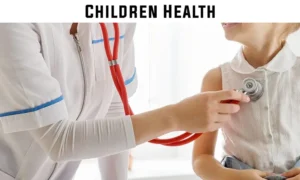Our mission is to support the needs of children and alleviate parental concerns by
offering comprehensive medical care for all childhood. illnesses and conditions.



Home > Infectious diseases
Infectious diseases are illnesses caused by harmful agents (pathogens) that get into your body. The most common causes are viruses, bacteria, fungi and parasites. Infectious diseases usually spread from person to person, through contaminated food or water and through bug bites. Some infectious diseases are minor and some are very serious.
How are infectious diseases diagnosed?
Your healthcare provider usually diagnoses infectious diseases using one or more lab tests. Your provider can look for signs of disease by:
Some test results, like from a nose swab, come back quickly, but other results might take longer. For instance, sometimes bacteria has to be grown in a lab (cultured) from a sample before you can get your test result.
What is antibiotic resistance?
Antibiotic resistance is when bacteria develop mutations that make it harder for our medicines to destroy them. This happens when antibiotics are overused, such as for minor infections that your body could fight off on its own.
Antibiotic resistance makes some bacterial infections very difficult to treat and more likely to be life-threatening. Methicillin-resistant Staphylococcus aureus (MRSA) is an example of a bacterial infection that has become antibiotic-resistant.
Healthcare providers are working to reduce antibiotic resistance. You can help — and protect yourself — by finishing all of your antibiotic medication as prescribed. This helps to make sure all of the bacteria are destroyed and can’t mutate.
> Pneumonia
> Tuberculosis
> Sinusitis
> Bronchitis
> Meningitis
> Hepatitis (A, B, C)
> Conjunctivitis (Pink eye)
> Dust mite allergy
> Food allergies (e.g., peanuts, shellfish, dairy)
> Contact dermatitis
> Latex allergy


The child’s health problems depend on the interaction of several factors. The most significant is by family, environmental and academic…
Read Article >>
Mental health is important to a person’s health and affects everyone. In recent years, people have become more aware of…
Read Article >>
Why Do I Feel Tired All The Time? 7 Reasons for Fatigue Why do I feel so tired? Why do…
Read Article >>Lorem Ipsum is simply dummy text of the printing and typesetting industry.
High Quality Trusted Online Doctors Telehealth, your personal online doctor, is a project of the healthcare evolutions group with 17 years of experience in the medical field and numerous qualifications. Their senior GPs are the best at their job.